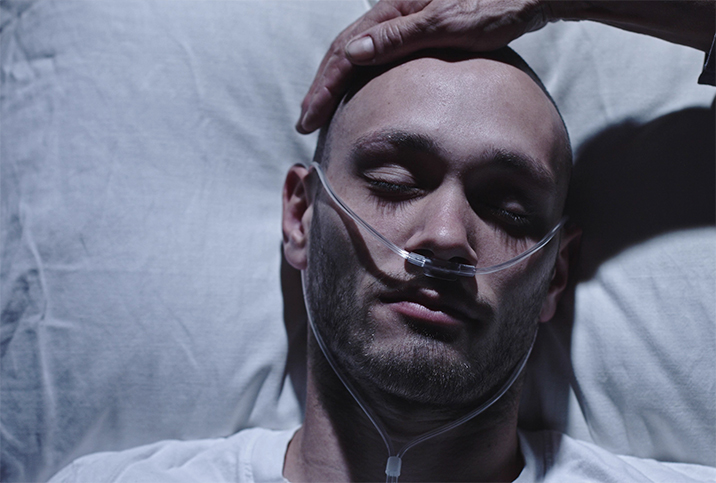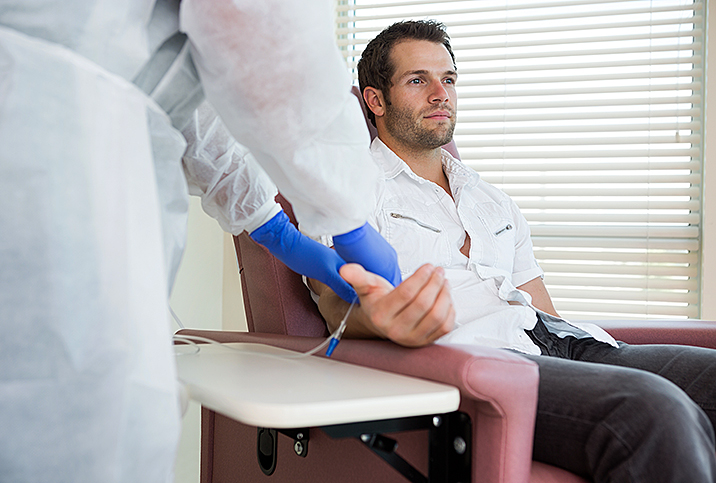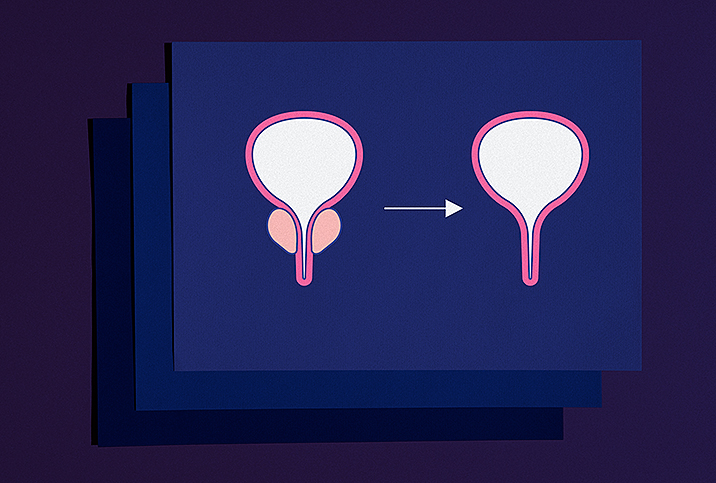Here's How to Lessen the Impacts of Chemotherapy for Prostate Cancer

In the fight against prostate cancer, chemotherapy is often the last resort for patients facing advanced diagnoses.
"When you get to advanced diseases, it's sort of an 'all-hands-on-deck' approach," said Roshan Patel, M.D., chief of the endourology division at University of California Irvine Health. Endourology is a specialty field in which minimally invasive techniques are used to inspect and perform surgery on the urinary tract.
The prostate, a walnut-shaped gland that sits below the bladder and in front of the rectum, produces fluid for semen, which transports sperm. If you're diagnosed with prostate cancer, the grade and stage of the cancer will determine the course of treatment.
Patel noted that chemotherapy surfaces as an option for prostate cancer patients only after surgery and androgen deprivation therapy (ADT) are either tried or ruled out as solo treatments. Chemotherapy is often prescribed in tandem with ADT and can amplify its side effects, including fatigue, decreased bone mass, infection and nausea/vomiting.
Chemotherapy is administered through an IV (oral options are also available), typically in a two- to three-week total cycle. The most common chemo treatments also include a steroid prescription to help reduce some of the side effects that can come with chemotherapy while boosting energy in some patients.
The role of androgen deprivation therapy
Prostate cancer feeds on testosterone to grow, explained Brian McNeil, vice chairman of the urology department at SUNY Downstate Health Sciences University in Brooklyn, New York. If the prostate surgery isn't successful or isn't an option, careful consideration is given to lowering the amount of testosterone in the patient's body.
Androgen deprivation therapy can involve an orchiectomy, the surgical removal of one or both testicles, or a periodic injection or daily pill to administer hormone-reducing drugs. In either case, the goal is the same: lower the level of testosterone enough to starve the cancerous cells.
"We monitor the therapy response by following the patient's prostate-specific antigen (PSA) levels," he said. "PSA levels should go down after treatment, but if levels continue to rise even after treatment, then chemotherapy comes into play."
PSA is a protein made by both normal and cancerous cells in the prostate gland. Levels above 4.0 nanograms per milliliter (ng/mL) are often considered a precursor to prostate cancer, although other conditions may elevate levels, as well.
However, ADT carries similar side effects to that of low testosterone (low-T): weight gain, development of fatty tissue around the breasts, lower bone mass, fatigue and lower libido. In more advanced cases, chemo and ADT are used together and can amplify certain side effects.
Use common sense to manage side effects
Eating well and staying active are the best ways to work through the side effects of chemotherapy, both Patel and McNeil said.
"[Cancer treatment] is a struggle for a lot of patients," Patel said, "but it's important to try and stay as active as possible."
Both doctors suggested resistance training and simple weight exercises to help offset some of the bone loss that both chemotherapy and ADT can cause. The amount of exercise needed is patient-specific, but even taking a short walk or lifting light weights is better than nothing at all. McNeil said he would also recommend calcium and vitamin D to help with bone density.
They also suggested a well-balanced diet, but research is still not definitive on which kind of foods may help during treatment. However, a 2005 study published in the Journal of Clinical Oncology noted that tomatoes, cruciferous vegetables and fish, among other foods, may help deter prostate cancer altogether.
About 250,000 new cases and 34,000 deaths from prostate cancer are expected in 2021, according to the American Cancer Society. Perhaps the most significant yet least discussed side effect is the toll a potentially terminal disease can have on mental health. Fatigue, loss of energy and sexual desire and just living with a serious disease can all chip away at mental fitness.
"Patients don't feel like themselves," McNeil said.
Both doctors encourage talk therapy and support groups to help patients cope with the magnitude of the situation before, during and after treatment. If chemotherapy is part of that treatment plan, patients can take several steps to manage the severity of side effects.


















